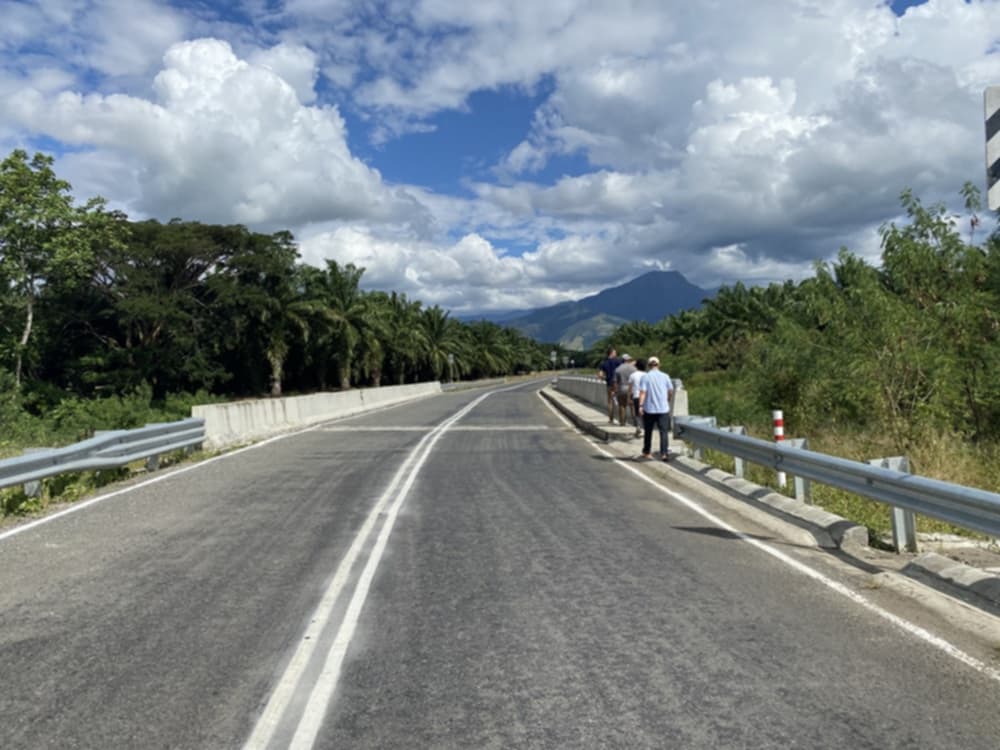Works and Highways Secretary David Wereh has praised the completed nine new climate-resilient bridges—three in East Sepik and six in Madang— as transformative impact project as it will boost the livelihoods of over 40,000 people in the rural areas along the Sepik and Ramu Highways.
“It has brought transformational social and economic benefits to rural communities by providing reliable and safer access to markets.”
“It has also significantly enhanced our knowledge and skills in bridge engineering.”
This follows an investment of $50 million (estimated K194mil) by EIB Global to construct these nine new bridges in the country, significantly improving connectivity and safety across the rural road networks of East Sepik and Madang provinces.
This project, part of a broader initiative called the Bridge Replacement for Improved Rural Access, was co-financed by the Asian Development Bank (ADB) and the Government of Papua New Guinea.
The project aims to improve the livelihoods of approximately 400,000 residents by providing better access to markets and social services.
The nine climate-resilient bridges, along the Sepik and Ramu Highways were completed on time and within budget.
In PNG, upgrading road and bridge infrastructure is vital due to the challenging geographic conditions, including rugged terrain and extreme weather, thus the replacement of nine outdated and unsafe bridges along these highways, marks a significant improvement in the national infrastructure.
They are more sustainable and resilient to climate change, enhancing safety, reliability, and accessibility for all road users.
The Bridge Replacement for Improved Rural Access project is a collaborative effort between EIB Global, the Asian Development Bank, and the National Government, and will facilitate the construction of 27 new bridges with a combined investment of about $150 million (estimated K582 million).
Of this, $90 million is from the ADB, $50 million from EIB Global, and $10 million from PNG Government.
By replacing these 27 outdated single-lane bridges with modern, double-lane permanent bridges, the project has significantly enhanced the transportation network and access within the country, improving the lives of thousands of residents.
Speaking about the 9 completed bridges, EIB Vice-President Ambroise Fayolle, who oversees EIB operations in the Pacific, described it a ‘significant milestone’.
“This cooperation between EIB Global, the Asian Development Bank, and the Government of Papua New Guinea has transformed deteriorating and hazardous river crossings into nine new high-quality bridges, enhancing rural connectivity and safety.”
On behalf of the Department of Treasury, the Secretary, Andrew Oaeke, Secretary also expressed gratitude for the continued support from the Asian Development Bank and the European Investment Bank.
“These quality bridges have improved the lives of citizens in the targeted provinces.”
He said the PNG government looks forward to future support for similar projects.
Jacques Fradin, the European Union Ambassador to Papua New Guinea, praised the project’s contribution to the country’s development.
“The European Union, through its bank, is proud to support the ‘Connect PNG’ programme, which aims to connect different parts of the country and facilitate social and economic development.”
“Improving transport and connectivity is central to the European Union’s Global Gateway Strategy.”
ADB Country Director for Papua New Guinea Said Zaidansyah further highlighted the project’s focus on road safety.
“The Bridge Replacement for Improved Rural Access project not only boosts rural access to urban centres but also prioritizes road safety.”
“The relocation of existing bridges involved consultation with affected communities, including women, regarding connectivity to markets, health facilities, and schools.”
EIB Global is the EIB Group’s specialized arm for operations outside the EU, and a key partner in the EU’s Global Gateway strategy.
It aims to support €100 billion of investment by 2027 and fosters partnerships with development finance institutions and civil society, and through global offices, EIB Global connects with local communities, companies, and institutions.

